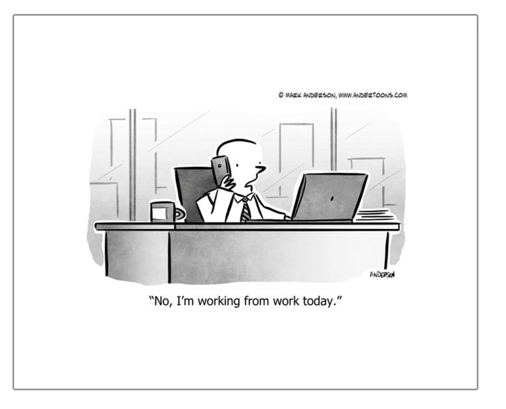

We are proud to announce that DP Solutions has achieved exclusive Blue partner status with Datto, the world’s leading provider of IT solutions delivered through managed service providers (MSPs). Datto Blue status represents the top 5% of the company’s partners, worldwide.
DP Solutions has exceeded high standards of performance to qualify for Blue status with Datto’s Global Partner the highest classification provided by Datto. Blue status includes many exclusive programs and benefits designed to support further enablement and business growth!
There is one thing many small businesses do that puts them at risk for a cyber-attack. They take a reactive approach to IT security. They wait until something bad happens before they do anything.
Unfortunately, we live and work in a time when you can no longer be reactive to cyberthreats. Practically every small business is connected to the Internet and relies on a network to function. It’s the digital world we live in. We have to deal with hackers, data loss, equipment failure and everything else that goes with living in that digital world.
But you can reduce your risk and prevent hackers from getting into your network by taking a proactive approach to your cyber security and by working closely with an experienced IT services company that knows how to navigate today’s digital world and all the threats that go along with it.
Looking back 20 or 25 years, reactive IT support used to be the norm. Something would go wrong and you could call up IT to fix it. Well, things are more complex in 2020. Threats take many forms, and simply being reactive doesn’t work anymore.
What does it mean to be proactive with your IT support?
It means your business is more secure and you’re ready to take on today’s cyberthreats. It means you’re working with professionals who have the tools and resources to protect you before the worst happens. It just makes sense.
Working with a dedicated IT firm means you don’t have to take care of your IT security needs by yourself. If you’re like most small businesses, you don’t have the resources to hire an IT specialist or a whole IT department. Having an on-site IT specialist can be expensive. Because they are in such high demand right now, they command hefty wages.
Plus, you don’t want any gaps in your support. If your one “IT guy” goes on a vacation or can’t come in one day, you’re out of luck should anything happen. When you work with an IT services firm, chances are they’ll offer 24/7 support (many of the good ones do).
When you have 24/7 support, it becomes so much easier to catch problems before they happen. If your cloud backup goes down, you’ve got support. If hackers try to break through your network security, you’ll be alerted. And all of your software stays up-to-date with the latest security patches. The list goes on. You have people watching out for your interests. Think about how much better you’d sleep at night with that kind of protection guarding your business!
Here’s another really great thing about working with a proactive IT services firm: you can tell your customers about it! In fact, you could make it a selling point. Today’s consumers are more security-minded than ever before. And with data breaches hitting major companies every year, your current (and future) customers want to know that their personal and financial data are safe.
Don’t wait until something breaks or until you are hacked before calling support for help. That puts the future of your business at risk. You need to work with an IT services company that is ready and willing to proactively manage your network. An experienced company has the training, certification and know-how required to tackle today’s cyberthreats while managing your network’s needs.
Make that call and never be caught off guard by threats that are never going to go away. Turn vulnerabilities into strengths.

How To Turn Weaknesses Into Strengths
Andy Bailey
Public speaker and author David Rendall has a book called The Freak Factor: Discovering Uniqueness By Flaunting Weakness that presents the idea that your weaknesses can be flipped to become your strengths. It’s all in how you view what you think are weaknesses and how you treat them. Rendall explains that rather than taking action in spite of your weaknesses, you should find ways in which they can actually be assets.
Rendall tours the country encouraging entrepreneurs and leaders to adopt this mindset. I’ve sat through his presentation a few times, and each time, I’ve come out with new and different perspectives. Here are my top three takeaways from Rendall’s teachings and how I’ve applied them in my own life.
Change the situation, not the person.
You can’t change people. You can compromise or accept them as they are, but you can’t “fix” them. However, you can craft the situation to make it a better fit for that person (without forcing it, of course).
I’ve seen many companies make the mistake of promoting someone from within to a position they’re just not meant for. Rather than forcing them into a position that’s outside their wheelhouse, get them the things they need to be better at what they already do best. In other words, try looking at their strengths and finding the fit that’s best for both them and you. They’ll be happier and more engaged, and your company will run a whole lot more smoothly.
Surround yourself with other strengths.
No profitable business runs without the help of at least some other soul somewhere along the line, and those people who help us are almost always filling in a skill set that we don’t possess ourselves. Why else would we ask for their help?
When you’re building a team, think about your strengths and weaknesses. What are you not great at? What characteristics do you lack that you need someone else to fulfill? Conversely, what do you already have or know that would render another person with this same exact skill set useless? It’s almost like putting together a puzzle. Find the people who fill in the gaps and complete the picture of your ideal company.
Cultivate your weaknesses.
The key thing that Rendall says is that your weaknesses are part of who you are, and you should embrace them and amplify them. What he means is that in the same way that you can’t easily improve on your weaknesses, you also can’t easily get rid of them, so why not accept them? As Jean Cocteau is often credited with saying, “Whatever the public criticizes in you, cultivate. It is you.”
This is something we all have the capacity to do, but it’s easier said than done because we are constantly advised to suppress those less-than-desired characteristics. The key is to sincerely harness your weaknesses and make them something constructive, something that you can use to your advantage or at least cleverly work around. From there, nothing can stop you from reaching any goal in sight.
.jpg?width=100&name=AndyBailey%20HS%20(105x140).jpg)
Andy Bailey is the founder, CEO and lead business coach at Petra, an organization dedicated to helping business owners across the world achieve levels of success they never thought possible. With personal experience founding an Inc. 500 multimillion-dollar company that he then sold and exited, Bailey founded Petra to pass on the principles and practices he learned along the way. As his clients can attest, he can cut through organizational BS faster than a hot knife through butter.

Business has permanently changed. In the early days of COVID-19, many people looked at the pandemic as a temporary setback. Perhaps due to optimism, they looked at this situation as if working from home or even closing their operation was going to be this thing we do while we hunker down for a few weeks and weather the storm. But even as we “reopen”, there is a growing sense that every business is going to have to change moving beyond the immediate crisis.
See These 7 Must Have Remote Tools

There has been a tremendous shift to virtual meetings and calls in the age of COVID-19.
We see this as a very positive thing, as these tools were underutilized in the past.
Virtual meetings present new challenges to security and risk as we are now constantly transmitting lots of information over the public Internet.
Although not all this information may be particularly sensitive; we should remember a few things…
Use specific, encrypted communications to share sensitive, or even not sensitive information. We cannot be sure that anything is private on the Internet, so don’t share information if it’s not necessary.